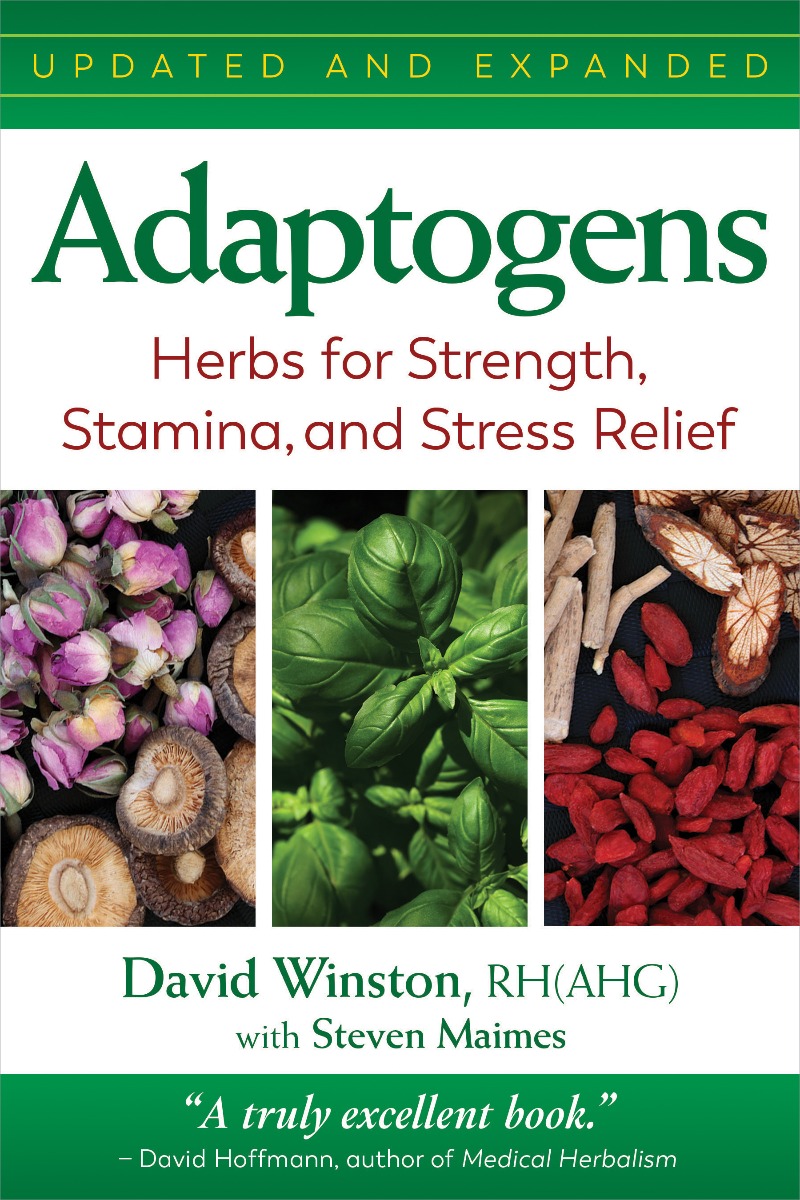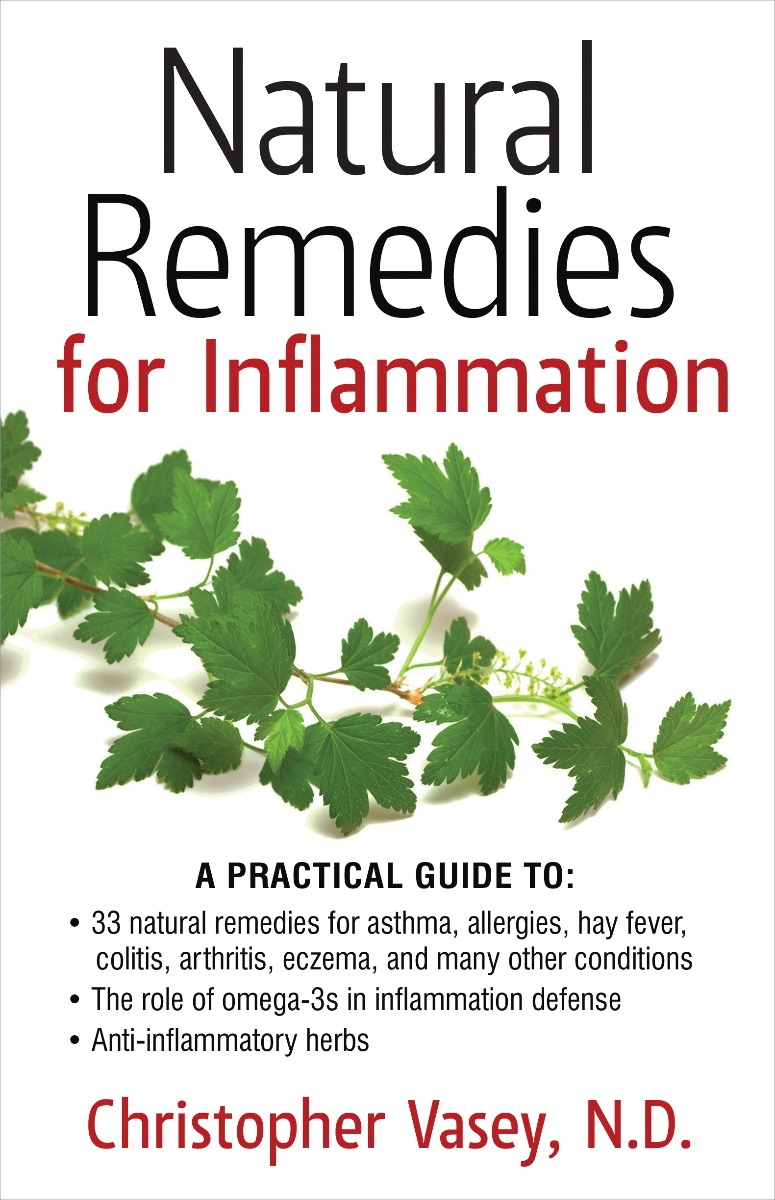COVID-19: SOME THOUGHTS ABOUT PREVENTION AND STAYING WELL
by David Winston, RH(AHG), author of Adaptogens
Can any herb, supplement, and/or diet help prevent or treat COVID-19? We simply do not know. In China, which has the longest experience (months) treating this disease, they have published extensive papers and notes (not research studies) on how they used TCM (Traditional Chinese Medicine) formulas to try to prevent this disease and for treating patients with COVID-19 infections. The doctors using these complex formulas claim they were very helpful, but only clinical trials or retrospective studies will actually show how useful they actually were.
In addition, TCM is not a one size fits all approach and each patient was treated according to their unique disease patterns (hot/dry, hot/damp, cold/dry, wind/dry, wind/heat, etc.). While some of the Chinese herbs being recommended for prevention (Astragalus, Reishi, Licorice) or treatment (Honeysuckle flowers, Forsythia fruit, Isatis leaf or root, Burdock seed, Baikal Skullcap, Andrographis) are commonly used and are usually widely available here (many of these herbs are now in short supply in the US), there are many much more obscure herbs being utilized that are not available in North America.
So, currently, the best and most effective way to prevent infection is still social distancing, avoiding contact with infected individuals (hard to know who that might be, since testing is still so spotty and it can be spread by people who are asymptomatic), frequent hand washing with soap and water, not touching your face, and being careful when handling possibly contaminated items.
That said, there are still many possibilities that can enhance overall health and perhaps resistance and our ability to fight an infection. These include getting good quality sleep, eating healthy, and getting exercise, as well as reducing stress.
Stress reduction techniques
This is an incredibly stressful time. We are worried about the possibility of loved ones or ourselves getting sick. We are practicing social distancing and miss our friends, family, and usual activities (I suppose we are now seeing some of the benefits of the internet and smart phones!). Many people are out of work, and our finances or businesses may be under serious pressure. We may be working from home with our partners and children and while that can be lovely, it can also be distracting and stressful. Going to the supermarket may feel dangerous, as can other necessary tasks such as people who are still working away from home or even more so in hospitals. We are bombarded daily with scary news, unknown time frames and increasing mortality figures. I am not saying ignore the news, but reading every post or listening to every newscast at some point becomes counterproductive. Get the news you need to know and then do something else. Read, watch funny films, paint, write, garden, listen to music, cook, learn a new skill or two, find ways to enjoy yourself and laugh if possible.
If you find your anxiety level increasing take the Bach Flower Rescue Remedy, or anxiolytic herbs such as Motherwort, Blue Vervain, Chinese Polygala, Bacopa, Lavender, Ashwagandha, Gotu Kola, Chamomile (good for anxious children), Holy Basil, Skullcap, Coriander or Passion Flower.
My favorite general anxiety formula is a combination of tinctures of:
Motherwort - 2 parts,
Blue Vervain - 1 part,
Fresh Oat - 2 parts,
Bacopa - 2 parts,
Chinese Polygala - 1 part,
Lavender - 1/2 part
I believe that many herbs that have been shown to enhance immune competence can possibly increase our resistance (although with a novel virus, i.e., a virgin field epidemic, that may not matter as much). Many immune potentiating and immune amphoteric herbs have been used in China as preventatives for colds, influenza, and other upper respiratory illnesses, including SARS (which is related to COVID-19 but is not the same virus). Some of these herbs are Astragalus, Reishi, Andrographis, Asian Ginseng, Prince Seng/Pseudostellaria, Codonopsis, Licorice or Cordyceps. Other immune potentiating herbs include Maitake, American Ginseng, Ashwagandha and Echinacea angustifolia.
In traditional herbal medicine botanicals are most effective when matched to the specific constitution and energetics of the person taking them, and they are always used in complex formulas. I am taking a TCM formula known as Jade Wind Screen, as well as Andrographis tincture as possible preventatives.
Are Herbs Anti-viral?
We have heard quite a bit about anti-viral herbs. The problem with this is there are only a handful of herbs that we actually know have in vivo (in a living organism) anti-viral activity. Topically many herbs do, but in a living organism that is quite a different thing.
There are many herbs that have benefits for viral diseases (colds, influenza, influenza-like illnesses, EBV, CMV, herpes), but in most cases we do not actually know why. Are they directly anti-viral ? Do they inhibit viral replication ? Do they enhance host immune response? Do they have some other effect or a combination of activities (very likely)? For the most part we simply do not know. So calling herbs anti-viral (again topical use is another story) is often a misnomer.
The handful of herbs we do have data on include Honeysuckle flower (it contains a micro RNA that is heat stable and water soluble that inhibits viral replication), Forsythia fruits and Elderberry.
In the case of Elderberry, the amount of misinformation concerning it and its supposed ability to cause a cytokine storm is astonishing. For more on this please see the blog of Donnie Yance, author of Adaptogens in Medical Herbalism. As for me I am very comfortable taking Elderberry syrup as a possible “preventative”, and also a mushroom with potential “anti-viral” activity called Agarikon, but evidence that they offer any benefits in this situation are non-existent.
People are looking back at the Chinese experience with SARS and suggesting the same herbs will be effective for COVID-19.
In 2003 China experienced the SARS epidemic. While it spread to several other countries (Taiwan, Singapore) and cities (Hanoi, Toronto, Hong Kong) it was not as contagious as COVID-19 and it never became a worldwide pandemic. TCM practitioners had considerable experience treating this deadly illness and many papers were published discussing what is believed to have worked and what did not.
There is considerable interest in both the TCM and herbal communities in using these same protocols for the related COVID-19 virus which shares approximately 82% genetic similarity to SARS. While these protocols might be useful, it is important to note that we share about 85% genetic similarity with mice! I am using this example to show that just as there is a very real difference between us and mice, the fact that SARS and COVID-19 share a great deal of DNA does not mean what would work for one will work for the other. Still, many of the herbs used for the previous epidemic are being used currently in China as part of their treatments for COVID-19 (as discussed above).
People are talking about herbs that were effective during the 1918 Spanish Flu pandemic. Will they work for COVID-19?
The first thing to remember is that COVID-19 is NOT an influenza virus, so even if something did work for this previous pandemic, we have no evidence that these herbs will work in our present situation. The Eclectic physicians stated that they effectively utilized a number of herbs to relieve symptoms and enhance recovery in their influenza patients over 100 years ago. They used herbs such as Boneset (for fever, with trouble breathing and muscle pain), Pleurisy root (it hurts to breathe), Black Cohosh (the bones hurt and ache due to fever), as well as several highly toxic herbs that are not appropriate for self-care.
While I use Eclectic specific indications today and feel something like Pleurisy root will be useful for most cases where it hurts to breathe (especially for Pleurisy), we cannot say how it will affect a case of COVID-19. I would also mention that there is no evidence that another herb used during the 1918 influenza epidemic, Lomatium (which can cause a nasty rash in some people), offers benefits for us in this situation either.
I wish I had answers for you all in these trying and scary times. I do not, nor does anyone else beyond the recommendations of the CDC, WHO, or NIH. I pray we will all take this seriously, follow their recommendations, stay safe, stay well, and remember we are all in this together. This is not an US vs. THEM situation. My health and your health are linked and if we help one another, take care of each other and our planet, we will all be the better for it.
Blessings, David
 |
 |
 |
 |
 |



